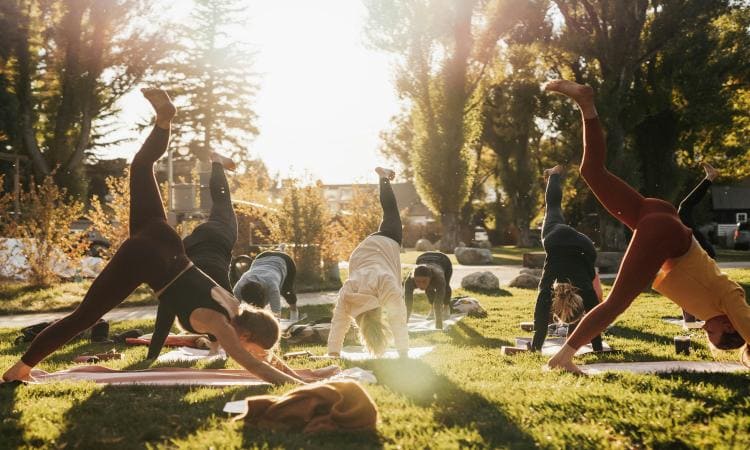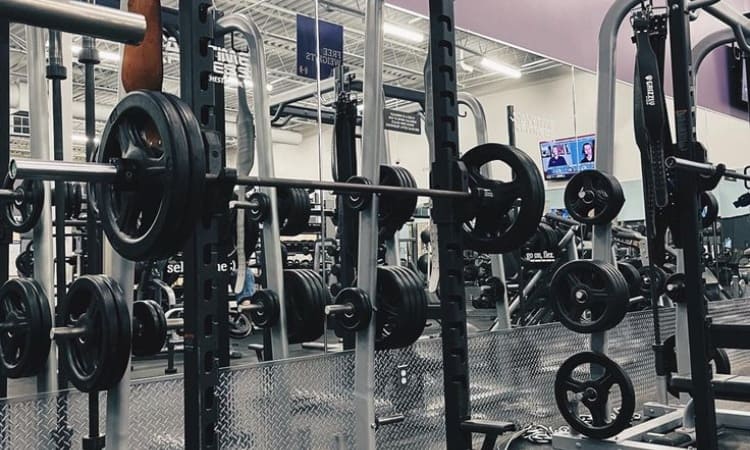Living a healthier lifestyle doesn’t mean you have to reinvent your entire life. Many people assume they need to switch diets, hit the gym daily, and follow complex routines just to feel better. In truth, sustainable health comes from consistent, manageable habits that support your well-being across all areas of life. That includes physical activity, rest, mental clarity—and often overlooked, financial preparedness. Planning ahead for your health also means preparing for life’s unexpected turns. Plans like life insurance become part of the wellness conversation because it’s not just about protecting loved ones; it’s about building long-term security, which reduces financial stress and supports a more stable, healthier future. By taking small steps now, you can build a lifestyle that truly supports your whole self—without dramatic changes.
-
Start with One Habit at a Time
Trying to change everything overnight leads to burnout and frustration. Instead, focus on one new habit at a time. Choose something simple, like drinking more water or walking ten minutes a day. Once that feels second nature, add another. This slow-and-steady approach allows your brain and body to adjust without stress. When you create a rhythm of small wins, you naturally build momentum. That momentum helps you move forward without backsliding. Remember, progress doesn’t come from massive change—it comes from consistent action that fits into your current lifestyle.
-
Strengthen Your Financial Health with Whole Life Insurance
Health isn’t only about your diet, exercise, or sleep—it also includes how secure and prepared you feel about the future. Financial stress can quietly affect your mental and physical well-being, leading to anxiety, poor sleep, and even unhealthy habits. That’s why building a healthier lifestyle should include strengthening your financial foundation. Whole life insurance offers more than just protection in case something happens—it builds long-term stability. With guaranteed coverage and cash value that grows over time, it acts as a financial safety net while also serving as a strategic asset. It can supplement retirement, provide emergency access to funds, or even help with future medical costs. By securing whole life insurance now, you create peace of mind that supports your overall wellness. You’re not just planning for what could go wrong—you’re preparing for what can go right, all while reducing the emotional and financial pressure that often gets in the way of living well.
-
Make Movement a Natural Part of Your Day
You don’t need to spend hours at the gym to be active. In fact, everyday movement has more long-term impact than occasional intense workouts. Think of ways to move that don’t require setting aside extra time. Take the stairs instead of the elevator. Walk to grab your coffee. Stretch while watching TV. Dance in the kitchen. These moments may seem small, but they add up quickly and help form an identity around being active. It’s not about working out—it’s about living in a body that enjoys movement. When activity feels like a chore, you’ll avoid it. But if it feels like a reward, you’ll crave more of it.
-
Eat Mindfully, Not Perfectly
Instead of aiming for a flawless diet, start paying attention to how food makes you feel. That one shift can change your entire relationship with eating. Slow down during meals. Notice your hunger cues. Choose foods that energize and satisfy you. There’s no need to eliminate entire food groups unless your body truly reacts negatively. When you become mindful about your food, you automatically make better choices. You stop eating out of boredom and start eating with intention. This isn’t about following rules—it’s about understanding what works for you and letting that guide your decisions. Eating well becomes a natural result, not a forced plan.
-
Create a Morning Routine That Centers You
Mornings set the tone for your entire day. Instead of diving straight into chaos—emails, news, rushing—start with a few minutes of calm. You don’t need an elaborate routine. Try stretching, journaling, sipping coffee in silence, or planning your top priorities. This helps anchor your day and gives your mind space to wake up without stress. Even ten minutes can make a difference. When you begin with purpose, you handle challenges better and avoid the reactive spiral that drains your energy. Your morning becomes a ritual that supports your goals and strengthens your commitment to living intentionally.
-
Build Boundaries Around Digital Time
Constant notifications, endless scrolling, and digital overload drain more than just your time—they drain your energy and focus. To live healthier, you need mental space, and that means setting limits with technology. Create phone-free zones or time blocks, like during meals or right before bed. Turn off unnecessary notifications. Choose real-life connections over screen time when possible. This isn’t about ditching tech—it’s about using it mindfully so it serves you instead of overwhelming you. A healthy mind supports a healthy body, and protecting your attention helps you stay grounded, present, and emotionally resilient in a world full of digital noise.
-
Surround Yourself with Positive Influences
Your environment plays a huge role in your habits, and that includes the people around you. Spend time with those who uplift you and encourage healthy choices—whether it’s friends who go on walks, coworkers who eat balanced meals, or family members who support your goals. Positivity is contagious. You don’t need to cut people out, but you can spend less time with those who drain your energy or enable unhealthy behaviors. A support system helps you stay motivated and accountable. And sometimes, just knowing someone believes in you makes it easier to believe in yourself and keep moving forward.
You don’t need to change everything to live better—you just need to change a few things consistently. A healthier lifestyle comes from simple, intentional choices that fit your real life. You sleep better. You eat with awareness. You move more. You stay connected to yourself and others. And through all of it, you take small steps that lead to big results. Let go of the pressure to be perfect. Start where you are. Use what you have. Build habits that stick—not because they’re hard, but because they make sense. A better life doesn’t require a complete overhaul. It just needs your next right step.


